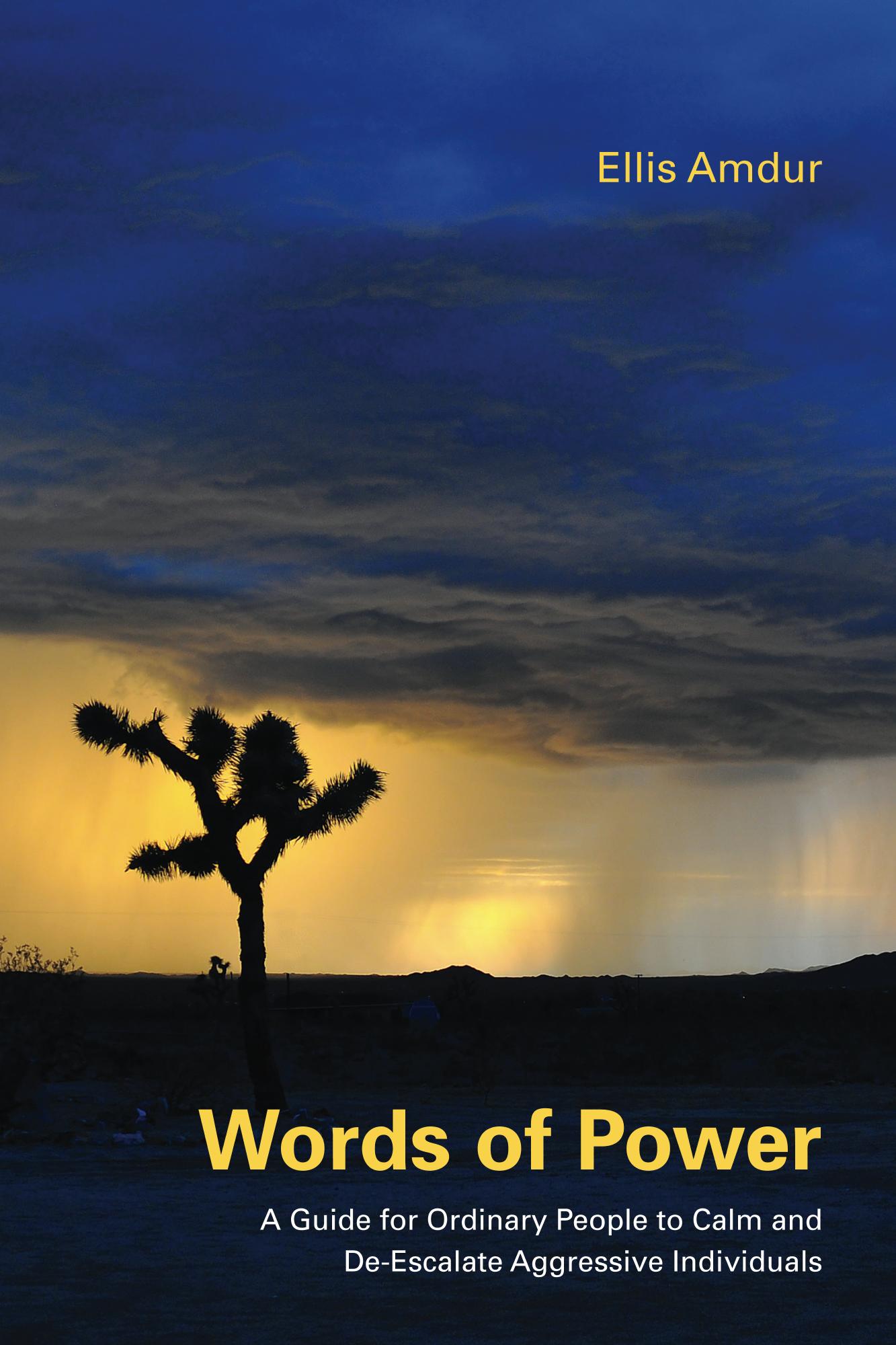
Aggression touches all of our lives. Whether it is a customer or angry coworker, an upset family member, a fellow student at school or college, or a stranger we bump into on the street, all of us, at times, must deal with aggressive people. Words of Power is written for ordinary people who may, on occasion, have to deal with an angry, even an enraged person. This book was written with the help of a unique cadre of critical readers. Rather than specialists, they are people from ordinary walks of life who are not in a profession or life-situation where they must interact on a regular basis with aggressive people. Through their critique, this book focuses on the information that ordinary people need: no more, no less. The book is simple without being simplistic. It is a comprehensive guidebook on how to de-escalate angry people and how to use verbal control tactics to manage the behaviors of enraged people. Words of Power also teaches how to develop your intuition, so that you become aware and can react before something has truly become dangerous. Most importantly, this book teaches how to calm and center yourself so that you have access to your best, most powerful qualities. You have the best chance of achieving peace when you embody peace.
Genre: EDUCATION / Violence & HarassmentThe following information will help you organize your body when dealing with aggressive individuals:
• Move smoothly. Agitated individuals startle easily, and any sudden movements or gestures on your part may be interpreted as an attack. By moving smoothly, you not hope to keep the person calm, but you also hope that the individual begins to mirror you: if you are calm, maybe there is no crisis after all, and they calm down as well.
• Breathing. When you are centered, people tend to feel calmer in your presence. Think of people whom you know who, when they walk in to volatile situations, everyone calms down. Think, also, of people who flame things up the moment they appear. Were you to track their respective breathing patterns, you would probably be able to predict what was going to happen simply by observing two or three breaths.
Eye Contact. In most cases, try and establish some type of eye contact. As with the other aspects of body language discussed above, you must be both non-threatening and non-threatened. Glaring at the individual with hostility or darting your gaze around nervously will just serve to make the individual more ill at ease or angry, and may actually cause them to attack pre-emptively. Eye contact, however, is NOT staring the person down—it is a gaze, not a glare:
Use your hands as a calming fence.
Stance is the embodiment of a physical attitude that is both non-confrontational yet ready for action. Stand with your hands clasped in front of your chest, the back of one hand in the palm of the other, palms inwards. This is the strong conversation stance. When the other person becomes agitated, you rotate your forearms so that the palms are out, slightly curved, as if you are intending to catch something. This is the fence. (When the person calms, you revert back to the strong conversation stance.)
| Language | Status |
|---|---|
|
Spanish
|
Already translated.
Translated by Teresa Sauceda
|
|
|
Author review: Teresa was wonderful to work with - she was prompt and clear in her communication. In addition, we had two readers to check the translation, and she was very willing to incorporate their suggestions. I strongly recommend working with her. |